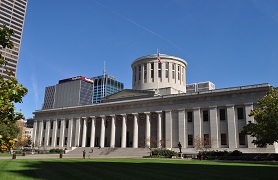COVID-19 Insights and Information
Attorneys at Eastman & Smith have been actively disseminating information addressing issues arising from COVID-19 pandemic. Below are articles and webinars discussing various laws, regulations and government actions in connection with the pandemic. To view our most recent posts, please visit our Articles page. Should you have any legal questions regarding how actions resulting from the pandemic may affect you or your business, please contact one of our attorneys.
To receive periodic alerts regarding COVID-19 legal developments, please sign up for our COVID-19 e-mails.
Laws and Regulations
Masks
Maskin g Confusion: CDC and States Do About-Face on Masks
g Confusion: CDC and States Do About-Face on Masks
On May 13, 2021, President Joe Biden announced the CDC was revising its guidance, saying that fully vaccinated people no longer need to wear a mask, either indoors or outdoors.
Vaccine/ETS
 OSHA Issues Highly Anticipated Emergency Temporary Standards
OSHA Issues Highly Anticipated Emergency Temporary Standards
On November 4, 2021, OSHA issued the highly anticipated COVID-19 Vaccination and Testing ETS, which requires employers with at least 100 employees to implement either a mandatory COVID-19 vaccination policy or a policy that allows employees who choose not to be fully vaccinated to undergo COVID-19 testing and report results every seven days and wear approved face coverings while at work.
 Preparing for Federal Contractor COVID-19 Vaccine Mandates and OSHA's Emergency Temporary Standard
Preparing for Federal Contractor COVID-19 Vaccine Mandates and OSHA's Emergency Temporary Standard
President Biden’s recent executive orders mandating vaccination for federal workers and federal contractors and his declaration that OSHA will be issuing vaccine or weekly testing mandates for certain private sector employers have fueled the flames of an already hot nationwide debate over mandatory COVID-19 vaccines and testing. As the debate plays out in workplaces, legislatures, and courts, many employers find themselves in the unenviable position of being caught in the crossfire.
Restart
 State Level Immunity From COVID-19 Related Cases
State Level Immunity From COVID-19 Related Cases
As more Ohio businesses, organizations and government entities reopen after the Governor’s lockdown orders, they face a legal uncertainty as to what liabilities they may face should an employee or customer contract COVID-19 while at the facility. These uncertainties have now been addressed with House Bill 606.
CARES Act
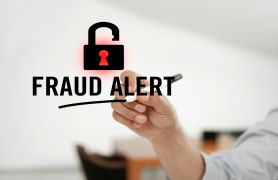 EIDL Fraud Alert
EIDL Fraud Alert
Since the passing of the CARES Act, many businesses have taken advantage of the Act’s various loan programs, in particular the Paycheck Protection Program and the Economic Injury Disaster Loans. However, as often happens, many people have found ways to take advantage of these programs.
The CARES Act provides a refundable tax credit of up to $1,200 to individual tax payers, or up to $2,400 for taxpayers filing jointly. Taxpayers with children under the age of 17 will receive an additional $500 per child. While the rebate for taxpayers is adjusted based on income, the tax credit provided for children is a fixed amount independent of income level. The credit is exclusive to children and does not include other dependents.
Among other programs providing economic relief to businesses by the CARES Act, is the creation of a forgivable loan program called the Paycheck Protection Program (PPP). This program was created as an addition to the existing framework for SBA Section 7(a) loans.
Section 4016 of the CARES Act makes temporary changes to the Federal Credit Union Act, specifically Subchapter III – Central Liquidity Facility. This Subchapter establishes a National Credit Union Central Liquidity Facility (Facility). The Facility helps provide financial stability to credit unions by serving as a liquidity lender to credit unions experiencing unusual or unexpected liquidity shortfalls.
The CARES Act provides approximately $2 trillion worth of financial assistance to individuals, businesses and health care systems affected by COVID-19. Some sections require that money be allocated to specific types of businesses or businesses with certain ownership characteristics. As this article will discuss, women-owned businesses and businesses that support women are among the groups that will receive funding.
The recently passed CARES Act allocates approximately $17 billion in relief to subsidize six months of payments for: (a) small businesses with existing SBA loans; and (b) small businesses soon to obtain an SBA loan. The act encourages lenders to provide payment deferments to its borrowers and extend the maturity dates of SBA loans to avoid impending balloon payments. In return, the SBA will provide, as coverage to the lender, the payment of principal, interest and any fees.
Defense Production Act
Title I of the DPA authorizes the President to prioritize the performance of contracts and allocate the materials, services and facilities “necessary or appropriate to promote the national defense.” Persons, including businesses and corporations, may be required to fulfill contracts deemed necessary to the national defense that have received a priority rating from the government. Businesses may respond to the order by accepting or rejecting it.
Families First Coronavirus Response Act
The new law includes an emergency expansion of FMLA and emergency paid sick leave. It expands FMLA leave benefits to all public and private employers with fewer than 500 employees. Emergency paid leave would also apply to all public and private employers with fewer than 500 employees.
Discusses the legalities of addressing COVID-19 in the workplace, available benefits for employees including an expansion of the availability of unemployment benefits, and paid leave requirements contained in the Families First Coronavirus Response Act.
 WEBINAR: The Families First Coronavirus Response Act: Responding to Employee Leave Requests in an Uncertain Time
WEBINAR: The Families First Coronavirus Response Act: Responding to Employee Leave Requests in an Uncertain TimePaycheck Protection Program
Among other programs providing economic relief to businesses by the CARES Act, is the creation of a forgivable loan program called the Paycheck Protection Program (PPP). This program was created as an addition to the existing framework for SBA Section 7(a) loans.
The CARES Act provides approximately $2 trillion worth of financial assistance to individuals, businesses and health care systems affected by COVID-19. Some sections require that money be allocated to specific types of businesses or businesses with certain ownership characteristics. As this article will discuss, women-owned businesses and businesses that support women are among the groups that will receive funding.
 DOJ Files First Charges for Abuse of the PPP
DOJ Files First Charges for Abuse of the PPP
Shortly after Congress established PPP as part of its enactment of the CARES Act, the DOJ announced that all U.S. Attorneys have been “directed to prioritize the investigation and prosecution of Coronavirus-related fraud schemes.” It didn’t take long for DOJ to act on those orders. Although the PPP is barely one month old, DOJ already has begun to prosecute abuses of the government program.
Stay-at-Home Order
 Welcome to Ohio (But Only After 14 Days of Quarantine): Nonresident Travel and Places Social Distancing Requirements on Stores, Among Other Changes
Welcome to Ohio (But Only After 14 Days of Quarantine): Nonresident Travel and Places Social Distancing Requirements on Stores, Among Other ChangesBankruptcy Law
 The Small Business Reorganization Act of 2019
The Small Business Reorganization Act of 2019
The Small Business Reorganization Act of 2019 (SBRA) effective February 19, 2020, created a new, streamlined process for small business debtors seeking a fresh start in bankruptcy. With many small businesses struggling to survive the economic disruption caused by the recent COVID-19 (a.k.a. coronavirus) pandemic, debtors and lenders unfortunately may find themselves navigating this new process in the near future.
 Stripping Down Residential Mortgages Under the Small Business Reorganization Act: A Preview of Things to Come?
Stripping Down Residential Mortgages Under the Small Business Reorganization Act: A Preview of Things to Come?
Among SBRA’s many new provisions is Section 1190(3), which negates the general Chapter 11 prohibition on modifying claims secured solely by a security interest in real property that is the debtor’s principal residence.
Contract Law
The COVID-19 pandemic, attendant stay-at-home/shelter-in-place orders and abrupt closure of vast swaths of the national economy suddenly have called into question borrowers’ ability to service home mortgage debt. Both the federal government and the Ohio legislature are moving quickly to respond.
Title I of the DPA authorizes the President to prioritize the performance of contracts and allocate the materials, services and facilities “necessary or appropriate to promote the national defense.” Persons, including businesses and corporations, may be required to fulfill contracts deemed necessary to the national defense that have received a priority rating from the government. Businesses may respond to the order by accepting or rejecting it.
Has Your Contract Caught COVID?
An Overview of Emerging COVID-19-Specific M&A Contract Provisions
Just as we have adapted to COVID-19 using masks, hand sanitizer, and social distancing, certain contracts are adapting as well. l
Employment Law
 Preparing for Federal Contractor COVID-19 Vaccine Mandates and OSHA's Emergency Temporary Standard
Preparing for Federal Contractor COVID-19 Vaccine Mandates and OSHA's Emergency Temporary Standard
President Biden’s recent executive orders mandating vaccination for federal workers and federal contractors and his declaration that OSHA will be issuing vaccine or weekly testing mandates for certain private sector employers have fueled the flames of an already hot nationwide debate over mandatory COVID-19 vaccines and testing.
As the debate plays out in workplaces, legislatures, and courts, many employers find themselves in the unenviable position of being caught in the crossfire.
The Equal Employment Opportunity Commission (EEOC) issued guidance regarding COVID-19 and related EEO regulations. The EEOC specified that requiring antibody testing for COVID-19 before returning to work is in violation of the Americans with Disabilities Act (ADA), but viral testing still is permissible.
The new law includes an emergency expansion of FMLA and emergency paid sick leave. It expands FMLA leave benefits to all public and private employers with fewer than 500 employees. Emergency paid leave would also apply to all public and private employers with fewer than 500 employees.
The CARES Act contains provisions for relief to businesses and their employees during the current crisis. Among those provisions are temporary relief to businesses obligated to fund pension plans, and potentially greater access to funds held in pension plans for employees affected by COVID-19. While we have no guidance as of yet, these do not appear to be requirements, and in some circumstances businesses will have to elect to allow their employees to take advantage of these provisions.
 OSHA Issues Highly Anticipated Emergency Temporary Standards
OSHA Issues Highly Anticipated Emergency Temporary Standards
They Require COVID-19 Vaccinations or Weekly Covid-19 Testing for Large Employers
A little more than two months ago, President Joe Biden called on the Department of Labor’s Occupational Safety and Health Administration (OSHA) to issue an emergency temporary standard (ETS) to control the spread of COVID-19 (a.k.a. coronavirus) in the workplace.
 WEBINAR: Luther to Present at HRASM Webinar
WEBINAR: Luther to Present at HRASM WebinarEastman & Smith member Lynn Vuketich Luther is co-presenting at the Human Resource Association of Southeast Michigan webinar, “Back to the Future of Work.”
Discusses the legalities of addressing COVID-19 in the workplace, available benefits for employees including an expansion of the availability of unemployment benefits, and paid leave requirements contained in the Families First Coronavirus Response Act.
Thomas A. Dixon and Carrie L. Urrutia, members of Eastman & Smith, were panelists in a virtual roundtable “Understanding the HR Implications of COVID-19.”
 WEBINAR: The Families First Coronavirus Response Act: Responding to Employee Leave Requests in an Uncertain Time
WEBINAR: The Families First Coronavirus Response Act: Responding to Employee Leave Requests in an Uncertain TimeJoin Eastman & Smith Ltd. attorneys Jim Yates and Sarah Pawlicki on April 3, 2020 at noon for a webinar in which they will walk businesses through the FFCRA and the regulations and how to respond to employee requests for leave.
Tax Law
The Treasury Department is deferring the filing and paying of federal taxes to July 15 for individuals and businesses. Since response to the pandemic has been so fluid, you should check with a tax professional regarding the filing and payment of federal, state, local and school taxes.
 Critical Guidance on COVID-19 Payroll Tax Credits
Critical Guidance on COVID-19 Payroll Tax Credits
The U.S. Treasury Department, IRS and DOL announced their plan to make two new, refundable payroll tax credits available for small and midsize employers covered by the Families First Coronavirus Response Act (the act). The two new tax credits are designed to reimburse employers for costs associated with providing COVID-19 related leave to their employees. This article will provide employers with the information necessary to take advantage of this financial relief.
Workers' Compensation
The Ohio Bureau of Workers’ Compensation and Ohio Industrial Commission have made changes to the processing and adjudication of workers’ compensation claims in light of COVID-19.
 Ohio BWC Issuing $1.6 Billion to Ohio Employers
Ohio BWC Issuing $1.6 Billion to Ohio Employers
The BWC recently approved a proposal to send up to $1.6 billon to Ohio employers in response to the COVID-19 pandemic. The move stems from Governor Mike DeWine’s request for agencies to assist in easing COVID-19’s impact on businesses.
Courts
 State Level Immunity From COVID-19 Related Cases
State Level Immunity From COVID-19 Related Cases
As more Ohio businesses, organizations and government entities reopen after the Governor’s lockdown orders, they face a legal uncertainty as to what liabilities they may face should an employee or customer contract COVID-19 while at the facility. These uncertainties have now been addressed with House Bill 606.
In light of the significant disruption caused by the COVID-19 (a.k.a. coronavirus) crisis, both Ohio and Michigan have taken steps to provide additional time to make certain required court filings which would otherwise be due during the crisis.
Businesses
Banking, Finance and Insurance
 WEBINAR: Creditors' Rights and COVID-19
WEBINAR: Creditors' Rights and COVID-19The COVID-19 pandemic, attendant stay-at-home/shelter-in-place orders and abrupt closure of vast swaths of the national economy suddenly have called into question borrowers’ ability to service home mortgage debt. Both the federal government and the Ohio legislature are moving quickly to respond.
Section 4016 of the CARES Act makes temporary changes to the Federal Credit Union Act, specifically Subchapter III – Central Liquidity Facility. This Subchapter establishes a National Credit Union Central Liquidity Facility (Facility). The Facility helps provide financial stability to credit unions by serving as a liquidity lender to credit unions experiencing unusual or unexpected liquidity shortfalls.
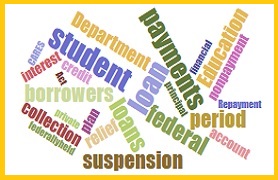 How Does COVID-19 Affect Your Student Loans?
How Does COVID-19 Affect Your Student Loans?
For many individuals, student loans are a large part of financial stress, with an even greater concern during times where one may become unemployed due to unforeseen circumstances, rendering repayment impossible. To ensure financial relief for federal student loan borrowers, the CARES Act was enacted, which made substantial adjustments to guidelines regarding federal student loans.
 Stripping Down Residential Mortgages Under the Small Business Reorganization Act: A Preview of Things to Come?
Stripping Down Residential Mortgages Under the Small Business Reorganization Act: A Preview of Things to Come?
Among SBRA’s many new provisions is Section 1190(3), which negates the general Chapter 11 prohibition on modifying claims secured solely by a security interest in real property that is the debtor’s principal residence.
Business Disputes
The historic business disruptions instigated by COVID-19 have caused business deals to be delayed, disputed or outright derailed. These events require a proactive approach to mitigate risks from disagreements and litigation.
Construction
Contractors, subcontractors and suppliers can and should be proactive in addressing COVID-19 in a few different ways things can and will change quickly as the pandemic unfolds.
Health Care
 Ohio Health Care Facilities to Reopen for Medically Necessary Procedures: State and Federal Guidance Provides Direction for the Responsible Reopening of Health Care
Ohio Health Care Facilities to Reopen for Medically Necessary Procedures: State and Federal Guidance Provides Direction for the Responsible Reopening of Health Care
On April 27, 2019, Governor Mike DeWine and Dr. Amy Acton made a joint announcement about their plan to restart Ohio’s economy amid the COVID-19 pandemic. Health care will be the first sector of the economy to restart services beginning May 1, 2020.
On March 25, 2020, the Ohio General Assembly passed H.B. 197, which enacts a number of provisions to assist health care providers during the COVID-19 (a.k.a. coronavirus) pandemic. As enacted, H.B. 197 contains the following emergency measures related to health care providers.
CMS has expanded its current Accelerated and Advance Payment Program to a broader group of Medicare Part A providers and Part B suppliers. CMS is offering participating Medicare providers and suppliers the opportunity to take an advancement on their “typical” Medicare payments to help with cash flow shortfalls during the pendency of the public health emergency.
The Secretary of Health and Human Services (HHS) issued blanket waivers of enforcement of the Stark Law under his 1135 waiver authority. The waivers only apply to financial relationships and referrals that are related to the national COVID-19 emergency, and the remuneration and referrals must be related solely to “COVID-19 Purposes.” They are effective as of March 1, 2020, and may be used without notifying CMS.
 Welcome to Ohio (But Only After 14 Days of Quarantine): Nonresident Travel and Places Social Distancing Requirements on Stores, Among Other Changes
Welcome to Ohio (But Only After 14 Days of Quarantine): Nonresident Travel and Places Social Distancing Requirements on Stores, Among Other Changes The COVID-19 Telehealth Program - An Overview of the Application Process for Health Care Providers
The COVID-19 Telehealth Program - An Overview of the Application Process for Health Care Providers
The FCC established the COVID-19 Telehealth Program to distribute $200 million in aid dedicated by the Coronavirus Aid, Relief, and Economic Security (CARES) Act to support telehealth services.
Isolation, quarantine, stay at home order, health district licensing and constitutional and privacy issues were discussed by Eastman & Smith member Joseph R. Durham and new associate Lauren M. DeGoricia via the webinar “Overview of Public Health Law and Local Health Districts.
Intellectual Property
 USPTO Issues Guidance for Claiming Excusable Nonuse of a Trademark Due to COVID-19
USPTO Issues Guidance for Claiming Excusable Nonuse of a Trademark Due to COVID-19
Under U.S. law, a trademark owner must periodically file a Section 8 declaration of use. Recently, the U.S. Patent and Trademark Office (USPTO) put an end to the uncertainty by announcing it will accept circumstances related to COVID-19 as an excusable nonuse in trademark maintenance filings.
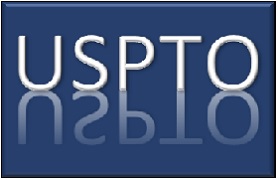 CARES Act: USPTO Allows Trademark and Patent Extensions
CARES Act: USPTO Allows Trademark and Patent Extensions
Currently, the United States Patent and Trademark Office (USPTO) is closed to the public but is open for the filing of documents and fees. However, it is allowing extensions of time for certain patent and trademark filings and for the payment of certain fees pursuant to an exercise of temporary authority provided via the Coronavirus Aid, Relief, and Economic Security Act (CARES Act).
Manufacturing
To assist restaurants, bars, alcohol manufacturers, and other related businesses during the pandemic, Ohio has proposed a refund of certain liquor permit fees and instituted a liquor buy back program.
Title I of the DPA authorizes the President to prioritize the performance of contracts and allocate the materials, services and facilities “necessary or appropriate to promote the national defense.” Persons, including businesses and corporations, may be required to fulfill contracts deemed necessary to the national defense that have received a priority rating from the government. Businesses may respond to the order by accepting or rejecting it.
Medium Size Businesses
Mining
Real Estate
 COVID-19 Related Real Property Tax Valuation Complaints: Changes to Dates for Valuation and Filing Provide Relief to Certain Ohio Real Property Owners
COVID-19 Related Real Property Tax Valuation Complaints: Changes to Dates for Valuation and Filing Provide Relief to Certain Ohio Real Property OwnersThe COVID-19 pandemic, attendant stay-at-home/shelter-in-place orders and abrupt closure of vast swaths of the national economy suddenly have called into question borrowers’ ability to service home mortgage debt. Both the federal government and the Ohio legislature are moving quickly to respond.
 Ohio Governor Requests Leniency for Commercial Tenants and Borrowers
Ohio Governor Requests Leniency for Commercial Tenants and Borrowers On April 1, 2020, Governor DeWine issued Executive Order 2020-08D to provide financial relief to small business commercial tenants and commercial real estate borrowers in the State of Ohio. Recognizing that the economic impacts of COVID-19 have made it difficult for Ohio businesses to make payments of rent and loans, the order sets forth the following directives.
 Stripping Down Residential Mortgages Under the Small Business Reorganization Act: A Preview of Things to Come?
Stripping Down Residential Mortgages Under the Small Business Reorganization Act: A Preview of Things to Come?
Among SBRA’s many new provisions is Section 1190(3), which negates the general Chapter 11 prohibition on modifying claims secured solely by a security interest in real property that is the debtor’s principal residence.
Restaurants
On May 11, 2020, Governor Mike DeWine announced a one-time Liquor Rebate Program available to help Ohio bars and restaurants preparing to reopen in the coming weeks.
To assist restaurants, bars, alcohol manufacturers, and other related businesses during the pandemic, Ohio has proposed a refund of certain liquor permit fees and instituted a liquor buy back program.
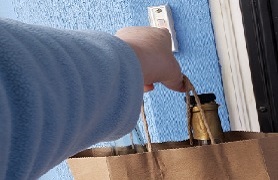 Order Your Whiskey Straight (to Your Doorstep)
Order Your Whiskey Straight (to Your Doorstep)On January 7, 2021, Governor Mike DeWine signed House Bill 674 into law, revising certain liquor laws in the State of Ohio. The new law includes notable changes, such as allowing the delivery of distilled liquor and spirits to the doorsteps of consumers.
Small Businesses
 Lending Support for Small Businesses Available Through JobsOhio Banking Partnership
Lending Support for Small Businesses Available Through JobsOhio Banking Partnership
Governor DeWine announced a new partnership between JobsOhio, Peoples Bank, and First Federal/Home Savings Bank. Utilizing $50 million committed to the partnership by JobsOhio, the banks will have additional capacity to support existing small business clients during the COVID-19 pandemic.
 Ohio Opens New Office of Small Business Relief
Ohio Opens New Office of Small Business Relief
Ohio’s nearly 950,000 small businesses now have a government office dedicated to their COVID-19 relief options and resources. In an April 7, 2020 news release, Governor DeWine announced the creation of an Office of Small Business Relief (OSBR) within the Ohio Development Services Agency.
The CARES Act contains a host of expanded programs available to small businesses through the U.S. Small Business Administration (SBA). Although the PPP has garnered much of the attention, a $10 billion expansion of the SBA 7(b) EIDL Program should not be overlooked. The CARES Act significantly loosened requirements for small businesses and created opportunities for small businesses to utilize the EIDL Program to meet operating expenses during these uncertain times.
The recently passed CARES Act allocates approximately $17 billion in relief to subsidize six months of payments for: (a) small businesses with existing SBA loans; and (b) small businesses soon to obtain an SBA loan. The act encourages lenders to provide payment deferments to its borrowers and extend the maturity dates of SBA loans to avoid impending balloon payments. In return, the SBA will provide, as coverage to the lender, the payment of principal, interest and any fees.
Among other programs providing economic relief to businesses by the CARES Act, is the creation of a forgivable loan program called the Paycheck Protection Program (PPP). This program was created as an addition to the existing framework for SBA Section 7(a) loans.
 Stripping Down Residential Mortgages Under the Small Business Reorganization Act: A Preview of Things to Come?
Stripping Down Residential Mortgages Under the Small Business Reorganization Act: A Preview of Things to Come?Travel
 Welcome to Ohio (But Only After 14 Days of Quarantine): Nonresident Travel and Places Social Distancing Requirements on Stores, Among Other Changes
Welcome to Ohio (But Only After 14 Days of Quarantine): Nonresident Travel and Places Social Distancing Requirements on Stores, Among Other ChangesWomen-Owned Businesses
The CARES Act provides approximately $2 trillion worth of financial assistance to individuals, businesses and health care systems affected by COVID-19. Some sections require that money be allocated to specific types of businesses or businesses with certain ownership characteristics. As this article will discuss, women-owned businesses and businesses that support women are among the groups that will receive funding.
Individuals
Intellectual Property
 CARES Act: USPTO Allows Trademark and Patent Extensions
CARES Act: USPTO Allows Trademark and Patent Extensions
Currently, the United States Patent and Trademark Office (USPTO) is closed to the public but is open for the filing of documents and fees. However, it is allowing extensions of time for certain patent and trademark filings and for the payment of certain fees pursuant to an exercise of temporary authority provided via the Coronavirus Aid, Relief, and Economic Security Act (CARES Act).
Rebates
The CARES Act provides a refundable tax credit of up to $1,200 to individual tax payers, or up to $2,400 for taxpayers filing jointly. Taxpayers with children under the age of 17 will receive an additional $500 per child. While the rebate for taxpayers is adjusted based on income, the tax credit provided for children is a fixed amount independent of income level. The credit is exclusive to children and does not include other dependents.
Retirement Plans
The CARES Act contains provisions for relief to businesses and their employees during the current crisis. Among those provisions are temporary relief to businesses obligated to fund pension plans, and potentially greater access to funds held in pension plans for employees affected by COVID-19. While we have no guidance as of yet, these do not appear to be requirements, and in some circumstances businesses will have to elect to allow their employees to take advantage of these provisions.
Student Loans
 How Does COVID-19 Affect Your Student Loans?
How Does COVID-19 Affect Your Student Loans?
For many individuals, student loans are a large part of financial stress, with an even greater concern during times where one may become unemployed due to unforeseen circumstances, rendering repayment impossible. To ensure financial relief for federal student loan borrowers, the CARES Act was enacted, which made substantial adjustments to guidelines regarding federal student loans.
Travel
 Welcome to Ohio (But Only After 14 Days of Quarantine): Nonresident Travel and Places Social Distancing Requirements on Stores, Among Other Changes
Welcome to Ohio (But Only After 14 Days of Quarantine): Nonresident Travel and Places Social Distancing Requirements on Stores, Among Other ChangesWomen
The CARES Act provides approximately $2 trillion worth of financial assistance to individuals, businesses and health care systems affected by COVID-19. Some sections require that money be allocated to specific types of businesses or businesses with certain ownership characteristics. As this article will discuss, women-owned businesses and businesses that support women are among the groups that will receive funding.
Additional Information
Webinars
The historic business disruptions instigated by COVID-19 have caused business deals to be delayed, disputed or outright derailed. These events require a proactive approach to mitigate risks from disagreements and litigation.
Eastman & Smith member Lynn Vuketich Luther is co-presenting at the Human Resource Association of Southeast Michigan webinar, “Back to the Future of Work.”
Isolation, quarantine, stay at home order, health district licensing and constitutional and privacy issues were discussed by Eastman & Smith member Joseph R. Durham and new associate Lauren M. DeGoricia via the webinar “Overview of Public Health Law and Local Health Districts.”
 The Families First Coronavirus Response Act: Responding to Employee Leave Requests in an Uncertain Time
The Families First Coronavirus Response Act: Responding to Employee Leave Requests in an Uncertain TimeJoin Eastman & Smith Ltd. attorneys Jim Yates and Sarah Pawlicki on April 3, 2020 at noon for a webinar in which they will walk businesses through the FFCRA and the regulations and how to respond to employee requests for leave.
Thomas A. Dixon and Carrie L. Urrutia, members of Eastman & Smith, were panelists in a virtual roundtable “Understanding the HR Implications of COVID-19.”
With the rapidly changing landscape as we react to the COVID-19 virus, it is not business as usual. This webinar is designed to bring timely, relevant and impactful insights on how this pandemic may affect your business.
Gary M. Harden and Scott A. Johnson were panelists in a virtual roundtable regarding COVID-19’s financial impact. Mr. Johnson addressed loan programs and commercial contracts while Mr. Harden discussed federal and state tax implications. Other panelists spoke on additional business issues including insurance and human resources. The University of Toledo Family Business Center hosted the event.
Discusses the legalities of addressing COVID-19 in the workplace, available benefits for employees including an expansion of the availability of unemployment benefits, and paid leave requirements contained in the Families First Coronavirus Response Act.
Firm Announcements
As a legal service provider, Eastman & Smith is deemed an essential business and is able to continue to provide its legal services to its clients. Notwithstanding the foregoing, however, we have taken additional responsive steps to ensure that we can provide such legal services in a manner that maximizes our ability to protect the health of our employees, clients, business partners and communities and allow us to do our part in limiting the spread of this disease.
Our Firm has continuously provided legal services to our clients for more than 175 years, and we are committed to doing so during this challenging time. We have implemented measures in all of our Firm’s offices to ensure the safety of our employees and clients and to provide continuity of service to our clients. We take the health and safety of our employees, clients, business partners, our legal communities and the community at large very seriously.

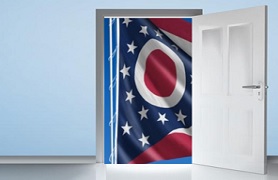




















 Business Disputes and Litigation: as the Pandemic Rolls On
Business Disputes and Litigation: as the Pandemic Rolls On

 CMS Offers Financial Relief for Medicare Providers During COVID-19 Crisis
CMS Offers Financial Relief for Medicare Providers During COVID-19 Crisis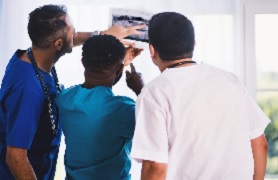

 WEBINAR:
WEBINAR: 

 Get Your Quarantine Cocktail To-Go: How the Ohio Liquor Control Commission’s Emergency Rule Clarifies Permissible Alcohol Take-Out and Delivery Sales
Get Your Quarantine Cocktail To-Go: How the Ohio Liquor Control Commission’s Emergency Rule Clarifies Permissible Alcohol Take-Out and Delivery Sales